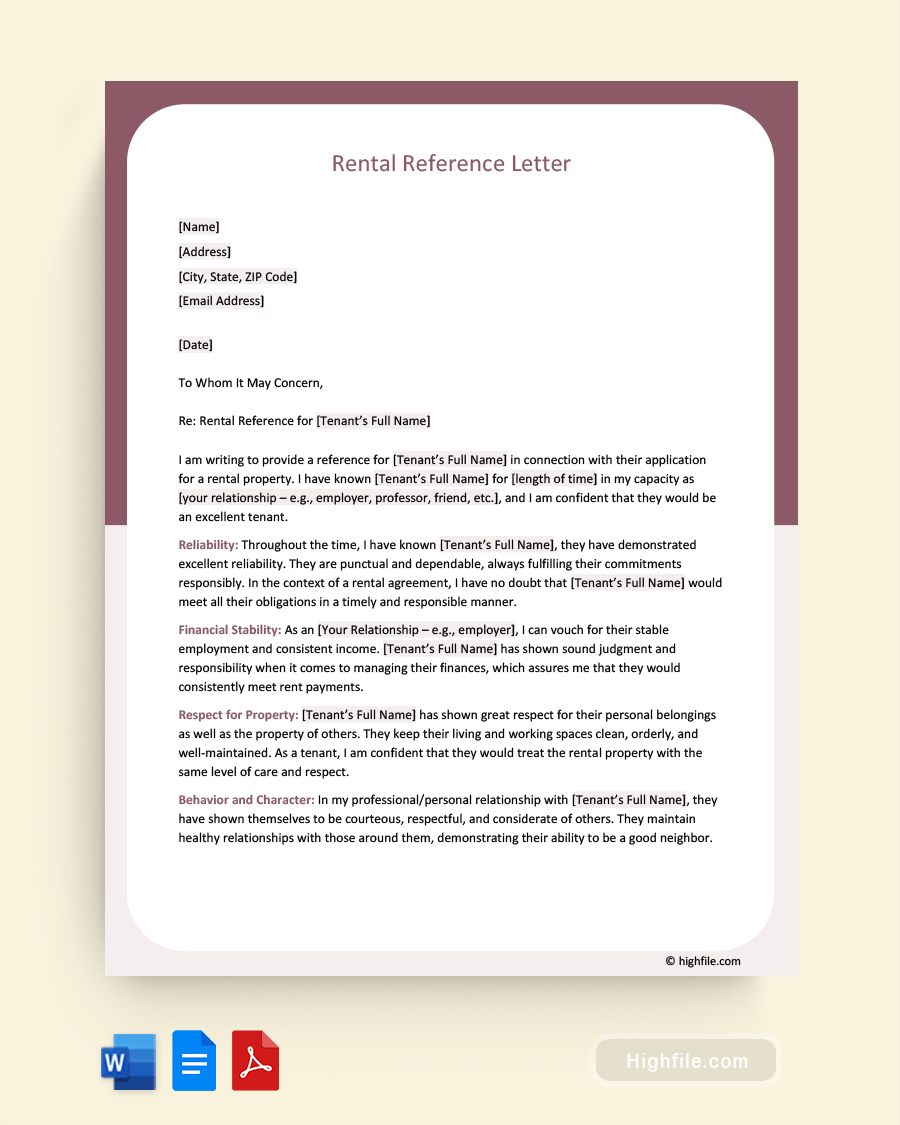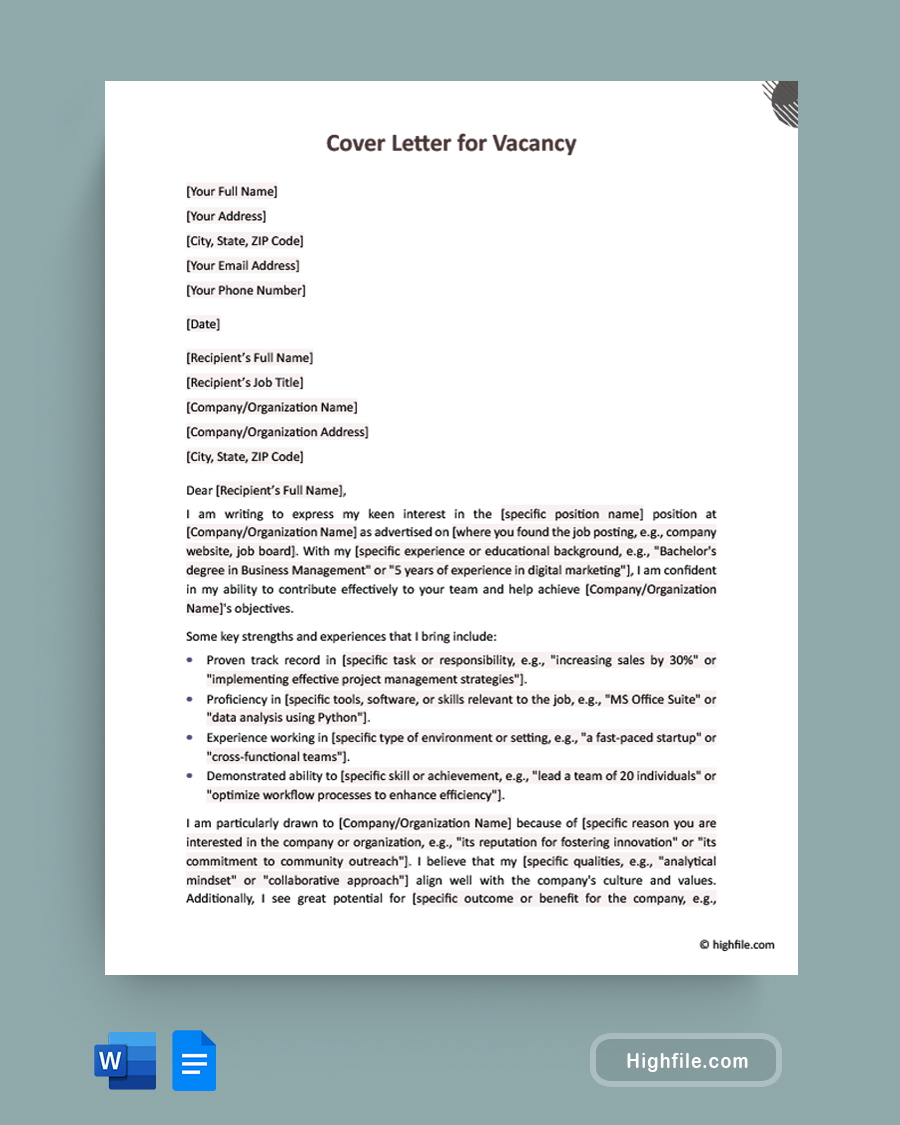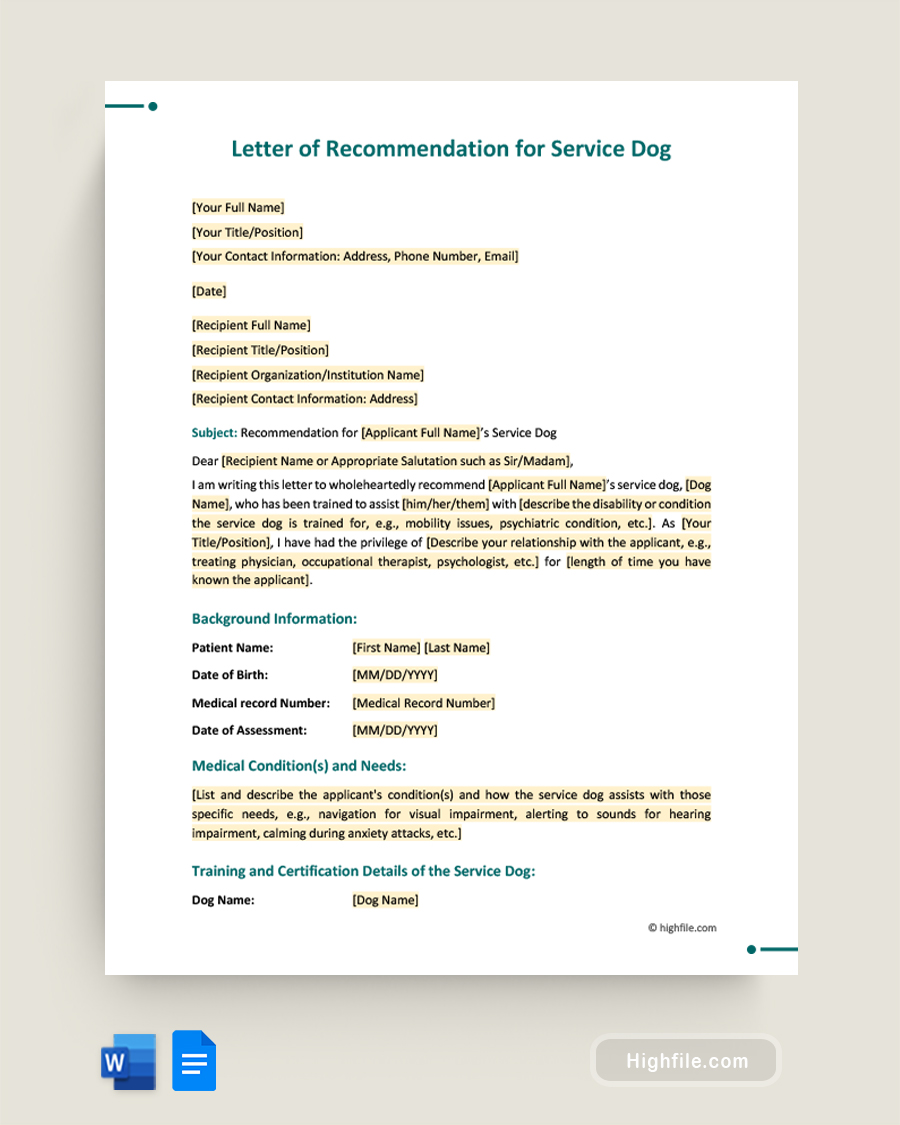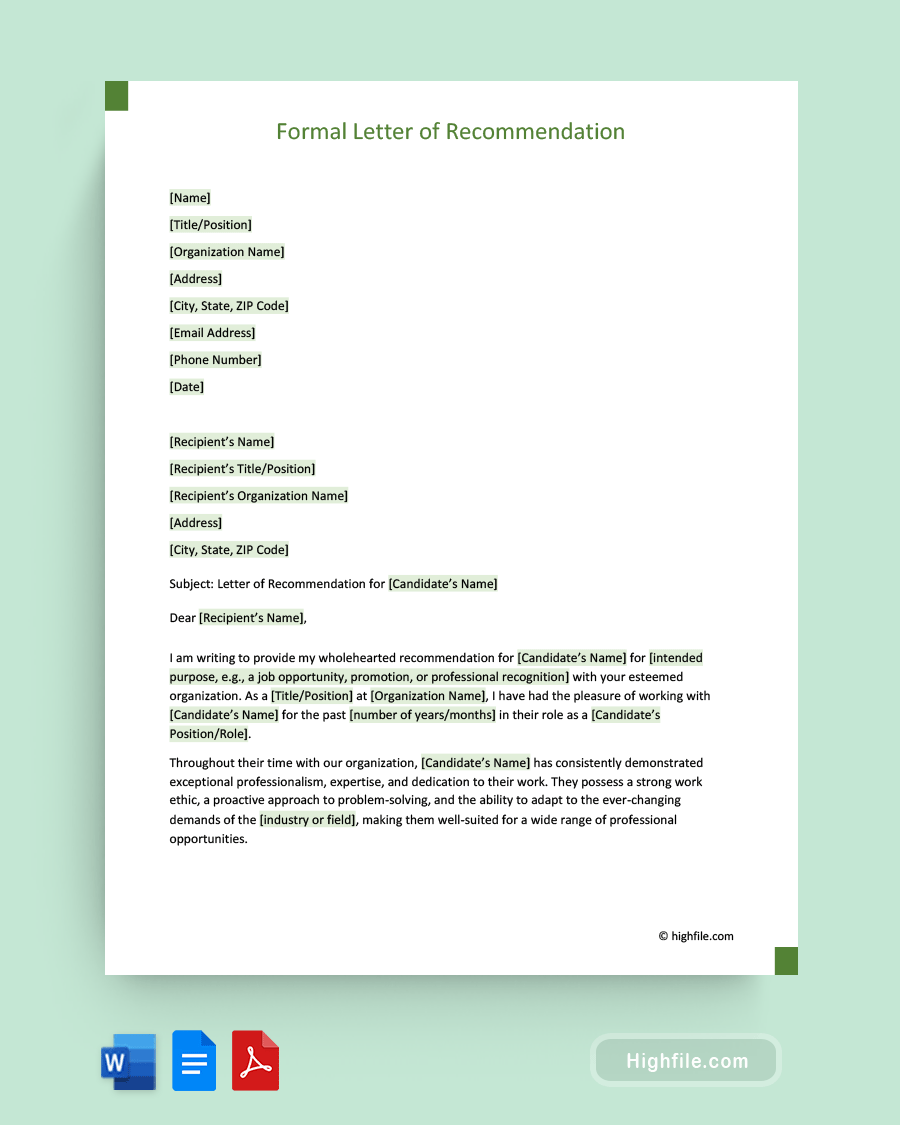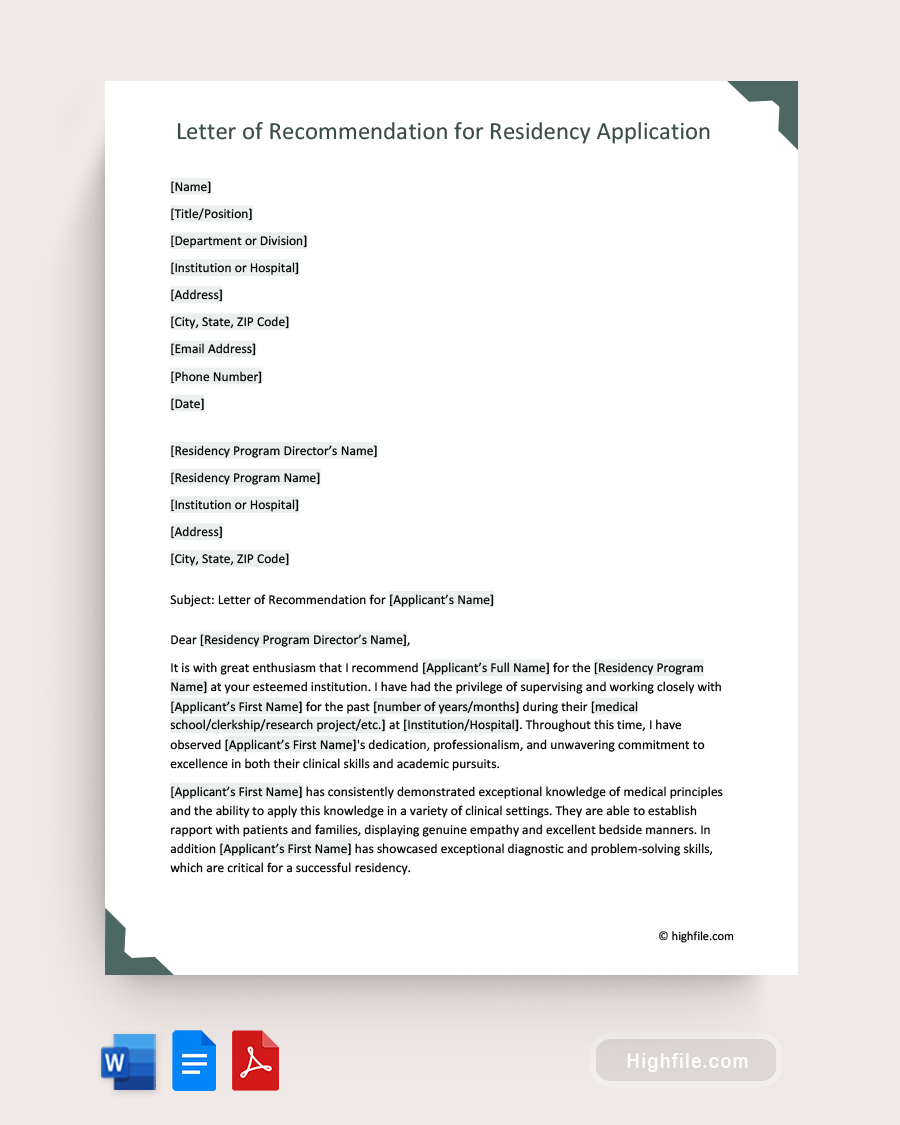A business in the real estate industry, such as a property management company, needs a rental reference letter to gather essential information about potential tenants and make informed rental decisions. The letter is a valuable tool that benefits the tenant in several ways. It provides reliable information about a tenant’s rental history, including payment reliability, conduct, and adherence to lease agreements. This information helps the business assess the applicant’s suitability as a tenant and minimize the risk of rental defaults or property damage.
Using a template to create rental reference letters offers numerous advantages to businesses. Templates ensure consistency in the format and content of the letters, maintaining a professional image and streamlining the process. With a template, businesses can quickly gather and organize relevant details such as the tenant’s name, rental period, rental amount, and any specific observations about their tenancy. This saves time and effort for the business while ensuring that all necessary information is included in the reference letter.
What Is a Rental Reference Letter
A rental reference letter is a document written by a current or previous landlord or property manager that provides information and feedback about a tenant’s rental history. It serves as a reference for prospective landlords or property managers to assess the tenant’s reliability, responsibility, and suitability as a renter. The letter typically includes details about the tenant’s rental period, payment history, cleanliness, adherence to rules and regulations, and overall behavior as a tenant. A rental reference letter is crucial in helping tenants secure new rental opportunities and demonstrates their credibility and trustworthiness as a renter.
Why Is a Rental Reference Letter Important?
A rental reference letter plays a crucial role in the tenant screening process for businesses in the real estate industry. It provides valuable insights and information about prospective tenants, allowing businesses to make informed rental decisions. Businesses can maintain positive landlord-tenant relationships and ensure a smooth and profitable renting experience by assessing tenant suitability and minimizing rental defaults.
- Provides crucial information about prospective tenants: A rental reference letter includes details about the tenant’s rental history, payment reliability, behavior, and overall suitability as a tenant.
- Helps businesses make informed rental decisions: The letter serves as a reference point for evaluating prospective tenants, helping businesses assess their credibility and likelihood of fulfilling rental obligations.
- Assists in assessing tenant suitability: It allows businesses to gauge whether the tenant’s preferences, lifestyle, and requirements align with the property’s policies and conditions.
- Minimizes rental defaults: By obtaining information about a tenant’s rental history and financial responsibility, businesses can mitigate the risk of rental defaults and potential financial losses.
- Maintains positive landlord-tenant relationships: A rental reference letter ensures transparency and helps establish a foundation of trust between landlords and tenants, fostering a positive and harmonious rental experience.
- Demonstrates the reliability and trustworthiness of the business: Issuing a rental reference letter serves as a testament to the business’s ability to maintain a positive relationship with tenants.
- Enhances credibility and professionalism: By providing a rental reference letter, tenants can showcase their professionalism and credibility to potential landlords.
- Supports future rental opportunities: A positive rental reference letter can open doors to future rental opportunities, partnerships, or collaborations, reflecting the tenant’s track record of responsible tenancy and financial stability.
Important Fact: Rental reference letters can be a crucial factor in the rental application process, as they provide valuable insights into your rental history. A positive rental reference can significantly increase your chances of securing a new rental property, while a negative or lack of reference may raise concerns for potential landlords. Therefore, it is essential to maintain good relationships with your previous landlords and ensure you have strong rental references to present when applying for a new rental property.
Essential Elements of a Rental Reference Letter
A rental reference letter serves as a recommendation or endorsement from a previous landlord or property manager, attesting to the tenant’s reliability and responsibility. You need to include the following essential elements in a rental reference letter.
- Writer Information: This includes the name, contact details, and professional designation of the individual writing the reference letter.
- Date: The date when the letter is written.
- Subject Line: A concise and clear subject line specifying the letter’s purpose, such as “Rental Reference for [Tenant’s Name].”
- Formal Salutation: The appropriate greeting addressing the recipient of the letter.
- Introduction: A brief introduction that states the letter’s purpose and provides an overview of the tenant’s tenancy period.
- Body: The main section of the letter elaborates on the tenant’s rental history, highlighting their positive qualities, payment history, maintenance of the property, and adherence to lease agreements.
- Summary and Endorsement: A concluding paragraph summarizing the tenant’s strengths and qualities as a reliable and responsible tenant, along with an endorsement of their suitability for future rental opportunities.
- Formal Closing (Sincerely): A professional closing phrase followed by the writer’s name and signature.
- Invitation to Contact: An invitation for the recipient to reach out for further information or clarification.
- Re-State Contact Information: Restate the writer’s contact details for easy reference.
Pro Tip: When requesting a rental reference letter, provide your previous landlord with a template or outline of the information you want them to include. This can help ensure that the letter covers all the necessary details, such as the duration of your tenancy, rental payment history, and any positive feedback. Additionally, consider offering to write a draft of the reference letter for your landlord, making it easier for them to provide a comprehensive and accurate recommendation.
FAQs
To ask your landlord for a reference letter, it is best to approach them politely and professionally. Start by scheduling a meeting or sending them a written request explaining your purpose. Clearly outline your need for a reference letter, provide any relevant information or documents they may require, and express gratitude for their assistance.
Rental references are highly important when it comes to renting a property. They serve as a testament to your reliability, trustworthiness, and ability to maintain an excellent rental history. Landlords and property managers often rely on rental references to assess the risk of potential tenants and make informed decisions. Positive rental references can significantly increase your chances of securing a desirable property.
It is common for landlords to ask for references as part of their tenant screening process. They seek references to gather insights into the applicant’s rental history, behavior, and reliability as a tenant. By contacting previous landlords or rental references, landlords can make informed decisions and assess the suitability of potential tenants for their rental property.
Key Points
It is common for landlords to ask for references as part of their tenant screening process. They seek references to gather insights into the applicant’s rental history, behavior, and reliability as a tenant. By contacting previous landlords or rental references, landlords can make informed decisions and assess the suitability of potential tenants for their rental property.
